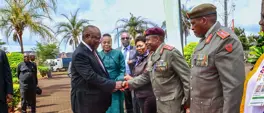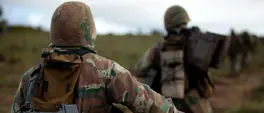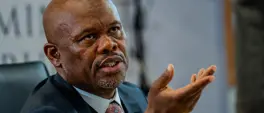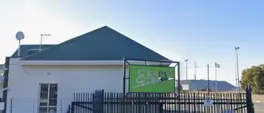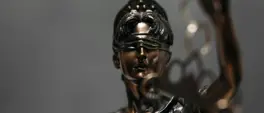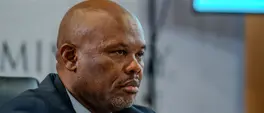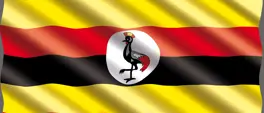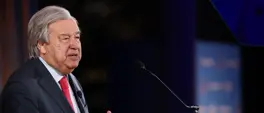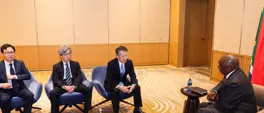Chad court jails ex-PM, opposition leader for 20 years
AFP
10 August 2025 | 6:12A court in Chad jailed former prime minister and opposition leader Succes Masra for 20 years Saturday, convicting him of hate speech, xenophobia and having incited a massacre.
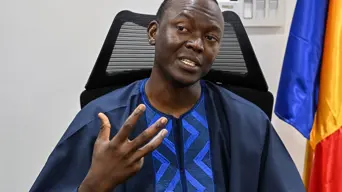
FILE: Former Prime Minister and opposition leader Succes Masra was sentenced on August 9, 2025 to 20 years in prison for incitement to hatred, xenophobia, and instigation of a massacre. Picture: Issouf SANOGO / AFP
N'DJAMENA - A court in Chad jailed former prime minister and opposition leader Succes Masra for 20 years Saturday, convicting him of hate speech, xenophobia and having incited a massacre.
The court in N'Djamena jailed Masra, one of President Mahamat Idriss Deby Itno's fiercest critics, for his role in inciting inter-communal violence in which 42 people were killed on May 14. It also imposed a fine of one billion CFA francs (1.5 million euros).
Most of the massacre victims were women and children in Mandakao, southwestern Chad, according to the court. On Friday, the state prosecutor had called for a 25-year sentence.
"Our client has just been the object of a humiliation," lead defence lawyer Francis Kadjilembaye told AFP.
"He has just been convicted on the basis of an empty dossier, on the basis of assumptions and in the absence of evidence," he added.
He called it a weaponisation of the courts.
Activists with Masra's Transformers Party gathered later Saturday to protest the conviction and condemn Deby. They said former finance Bedoumra Kordje had been appointed interim party leader.
Masra was arrested on 16 May, two days after the violence, and charged with "inciting hatred, revolt, forming and complicity with armed gangs, complicity in murder, arson and desecration of graves".
He stood trial with nearly 70 other men accused of taking part in the killings.
PRESIDENTIAL CANDIDATE
Originally from Chad's south, Masra comes from the Ngambaye ethnic group and enjoys wide popularity among the predominantly Christian and animist populations of the south.
Those groups feel marginalised by the largely Muslim-dominated regime in the capital N'Djamena.
During the trial, Masra's lawyers argued that no concrete evidence against him had been presented to the court.
He went on hunger strike in jail for nearly a month in June, his lawyers said at the time.
Like other opposition leaders, Masra had left Chad after a bloody crackdown on his followers in 2022, only returning under an amnesty agreed in 2024.
Trained as an economist in France and Cameroon, Masra had been a fierce opponent of the ruling authorities before they named him prime minister five months ahead of the presidential election.
He served as premier from January to May last year after signing a reconciliation deal with Deby.
Masra faced off against Deby in the 2024 presidential elections, winning 18.5 percent against Deby's 61.3 percent, but claimed victory.
Of the May 14 killings, one local source said they were thought to have sprung from a dispute between ethnic Fulani nomadic herders and local Ngambaye farmers over the demarcation of grazing and farming areas.
Conflicts between pastoralists and sedentary farmers are estimated by the International Crisis Group to have caused more than 1,000 deaths and 2,000 injuries in Chad between 2021 and 2024.
Get the whole picture 💡
Take a look at the topic timeline for all related articles.



